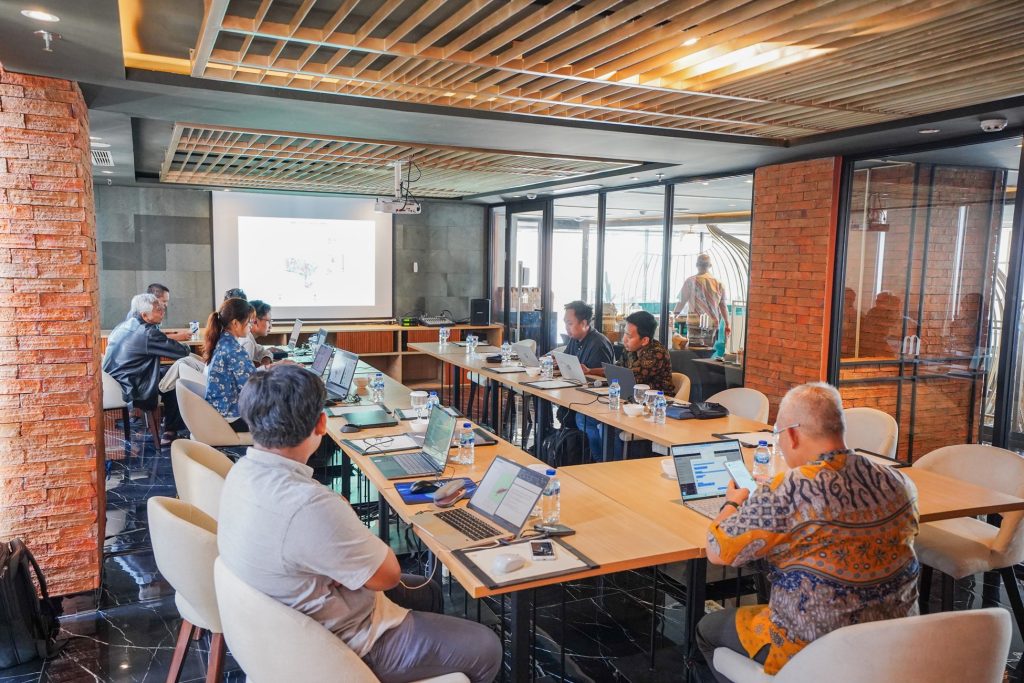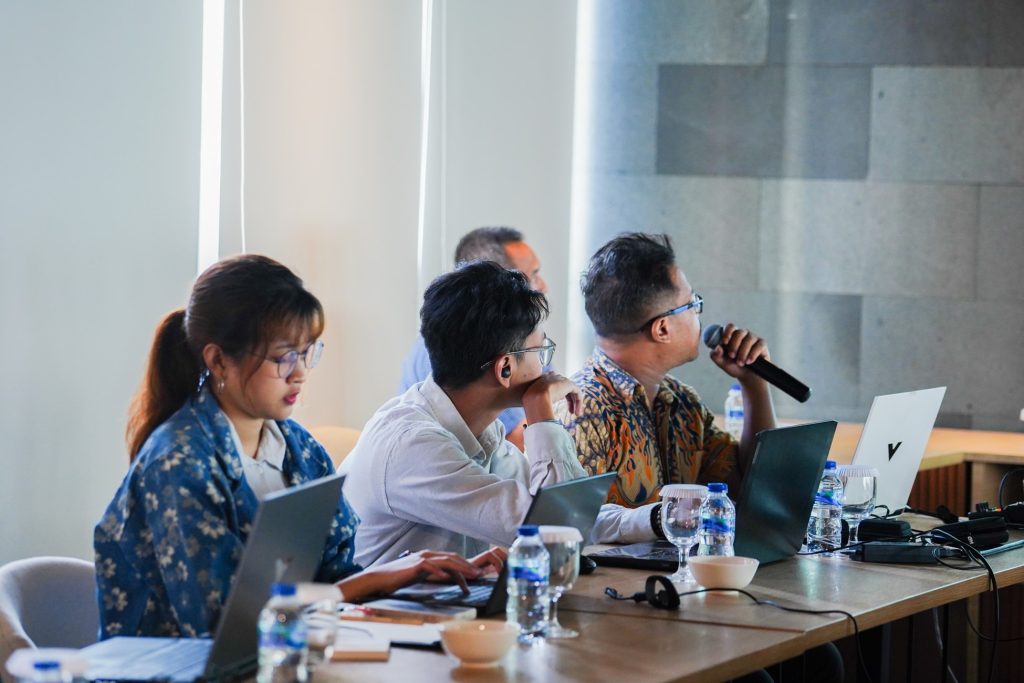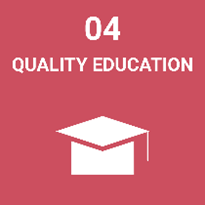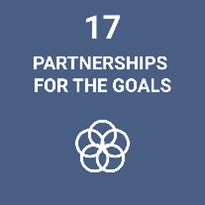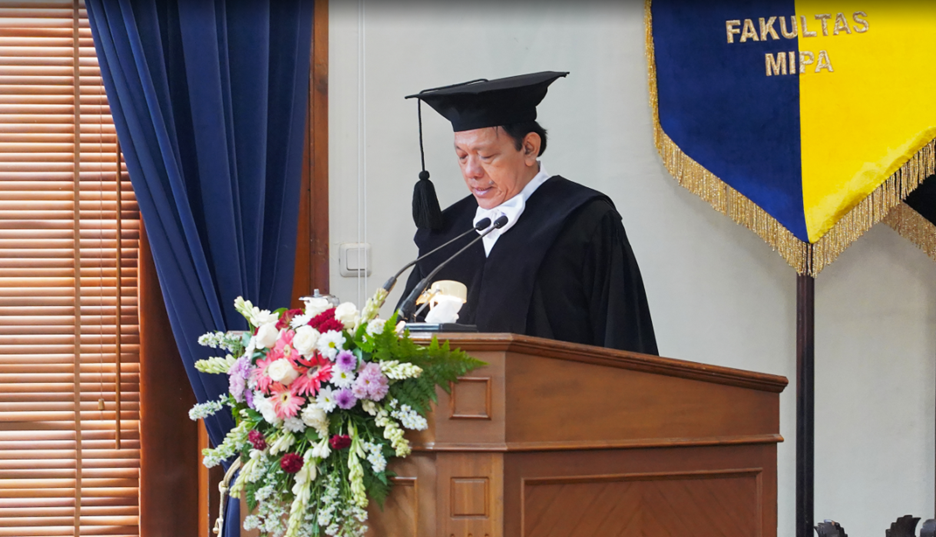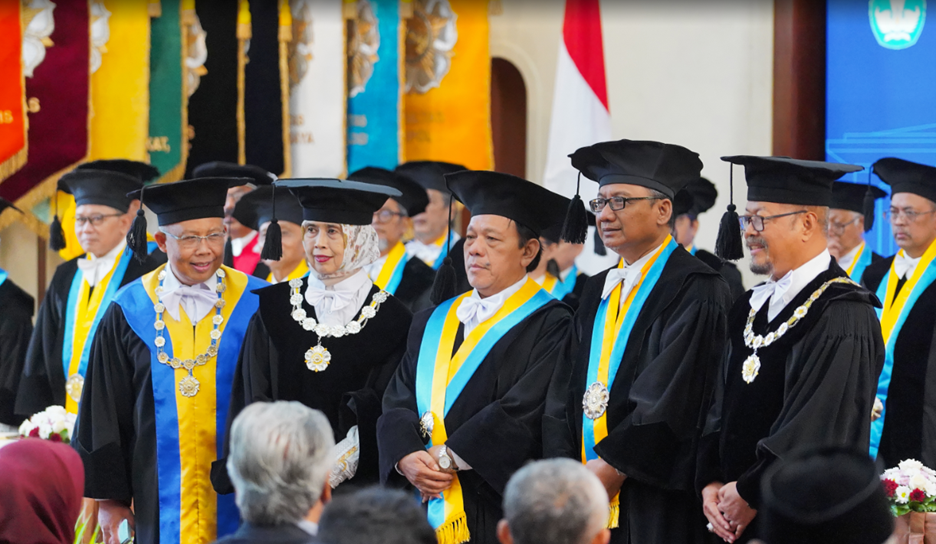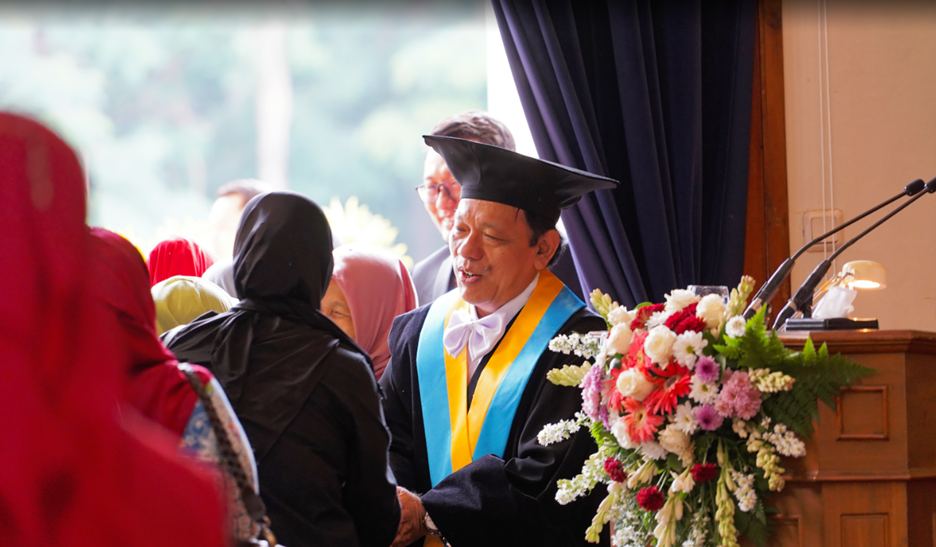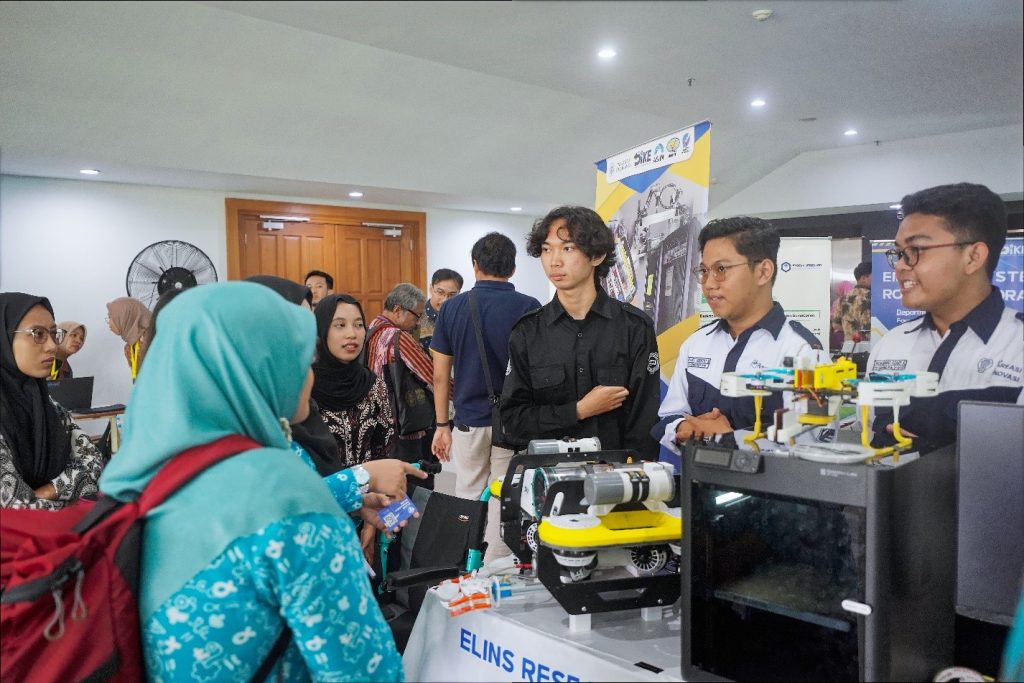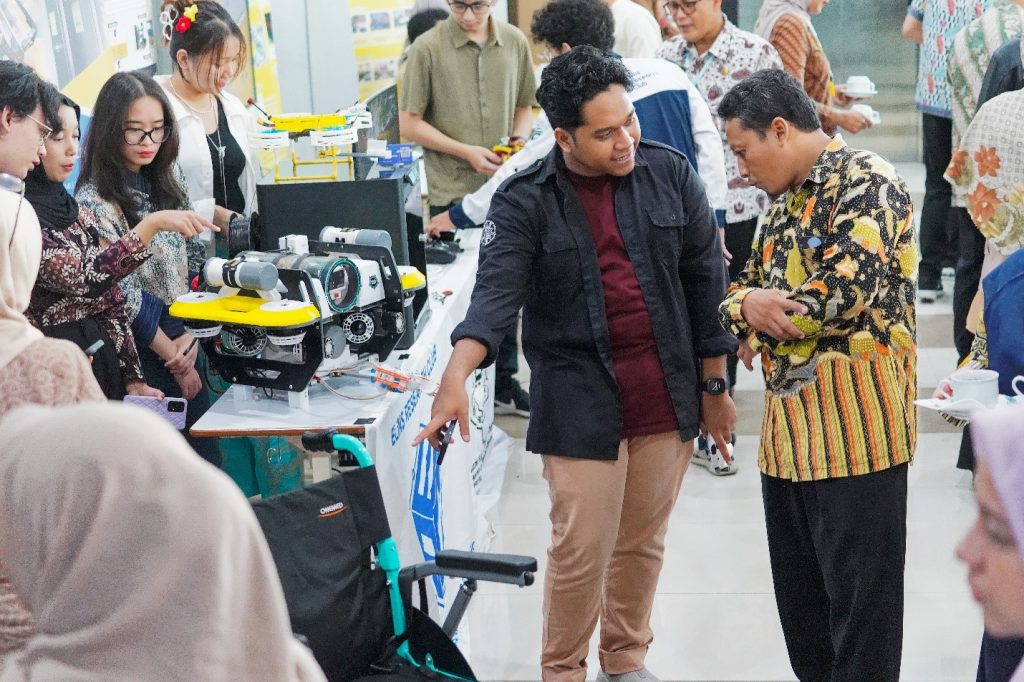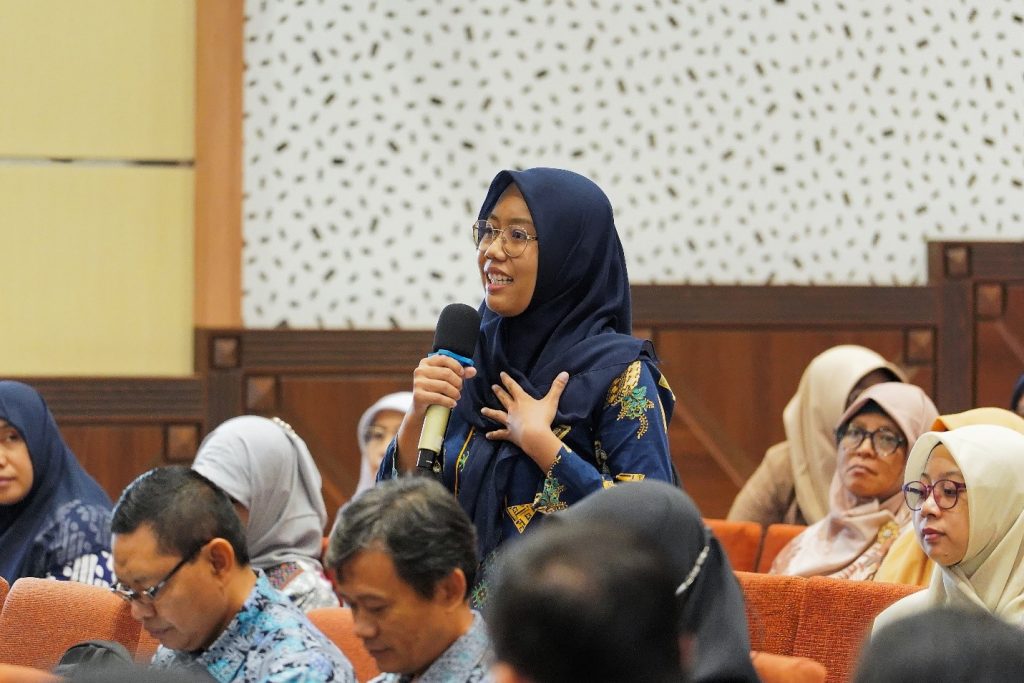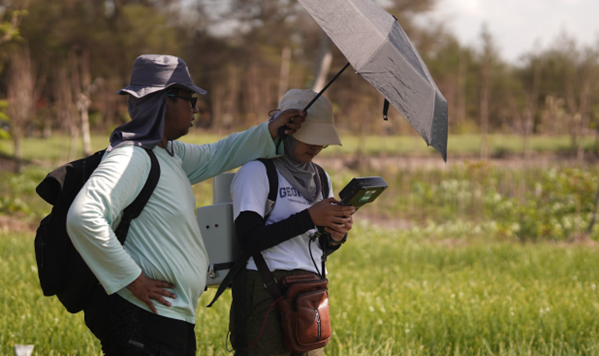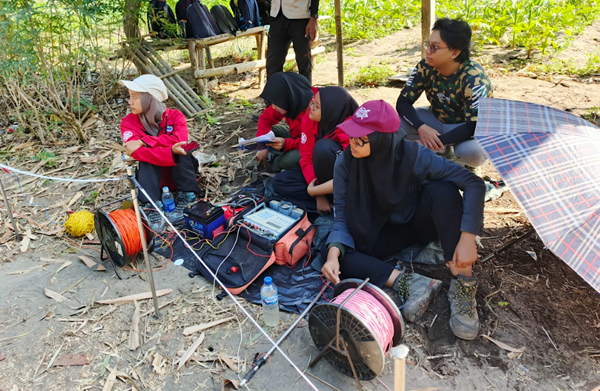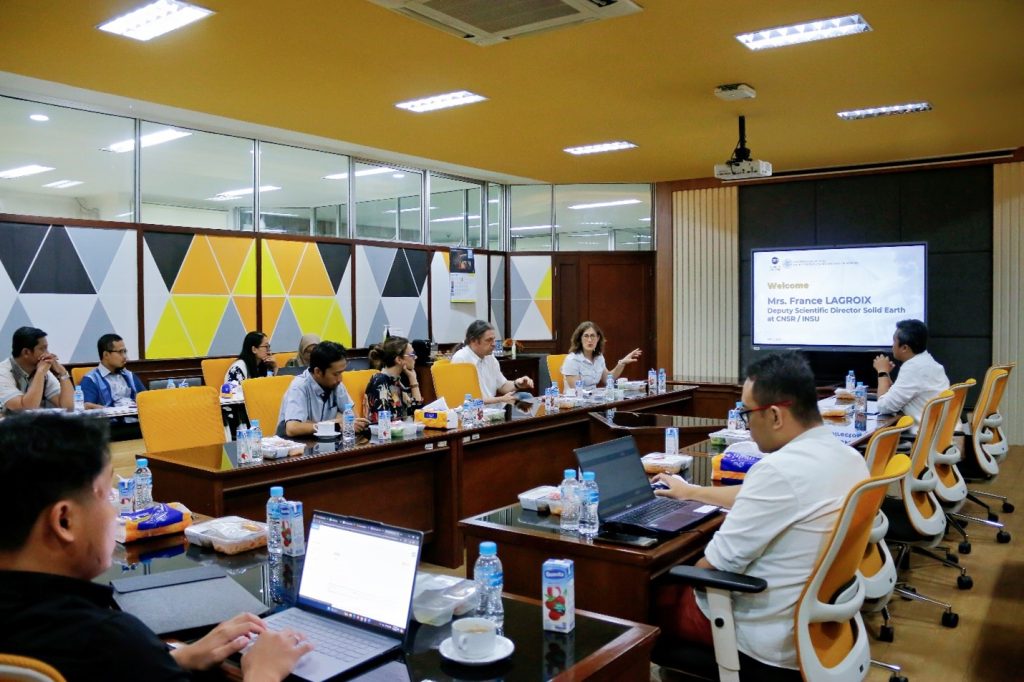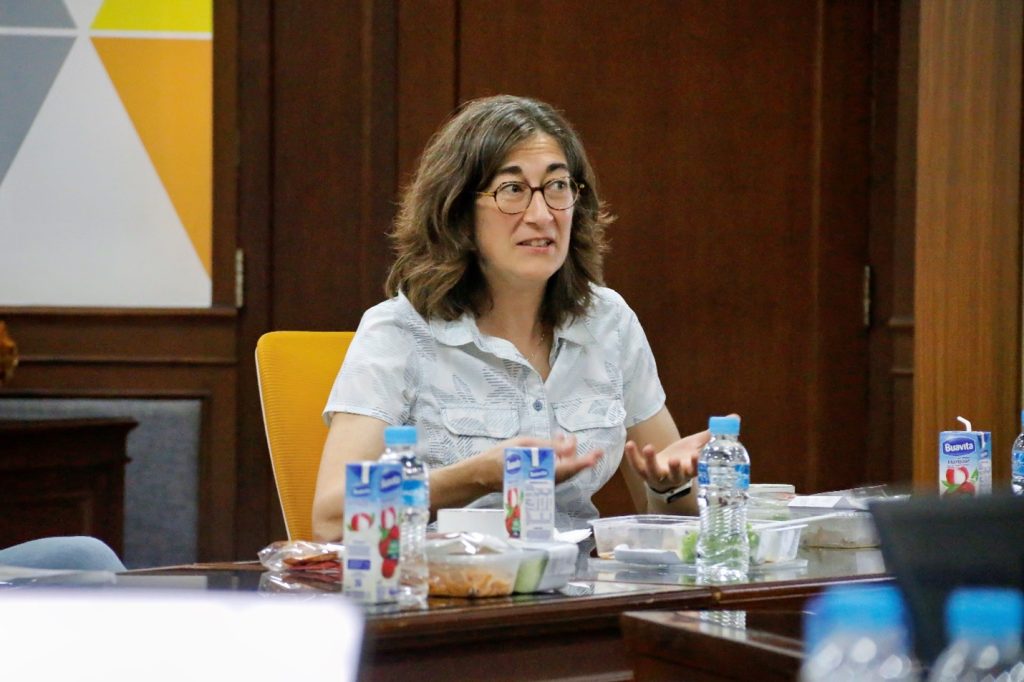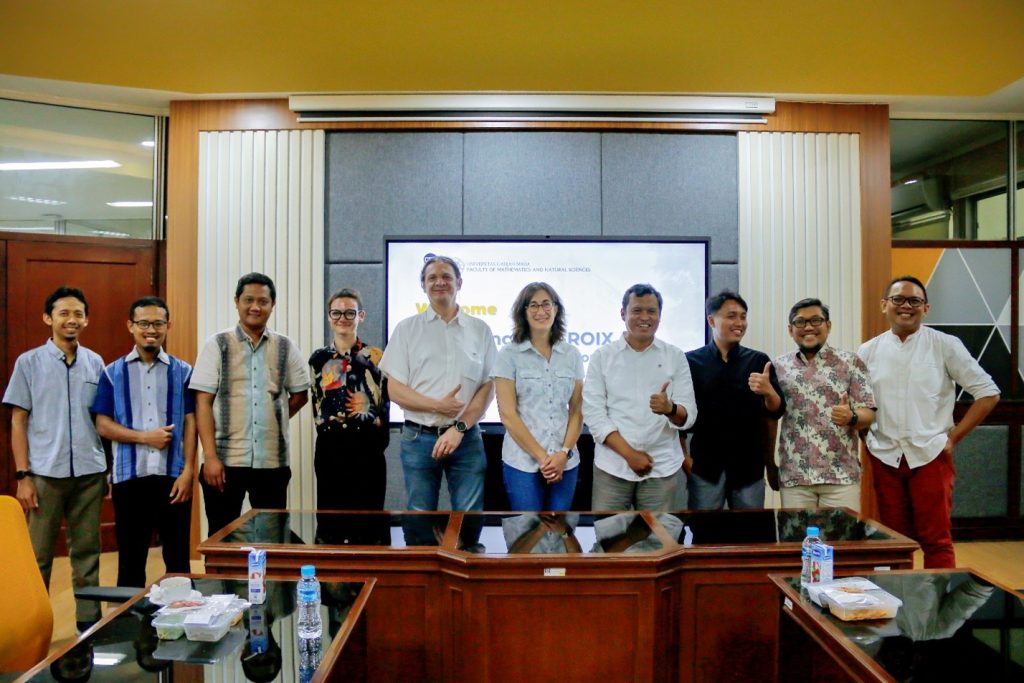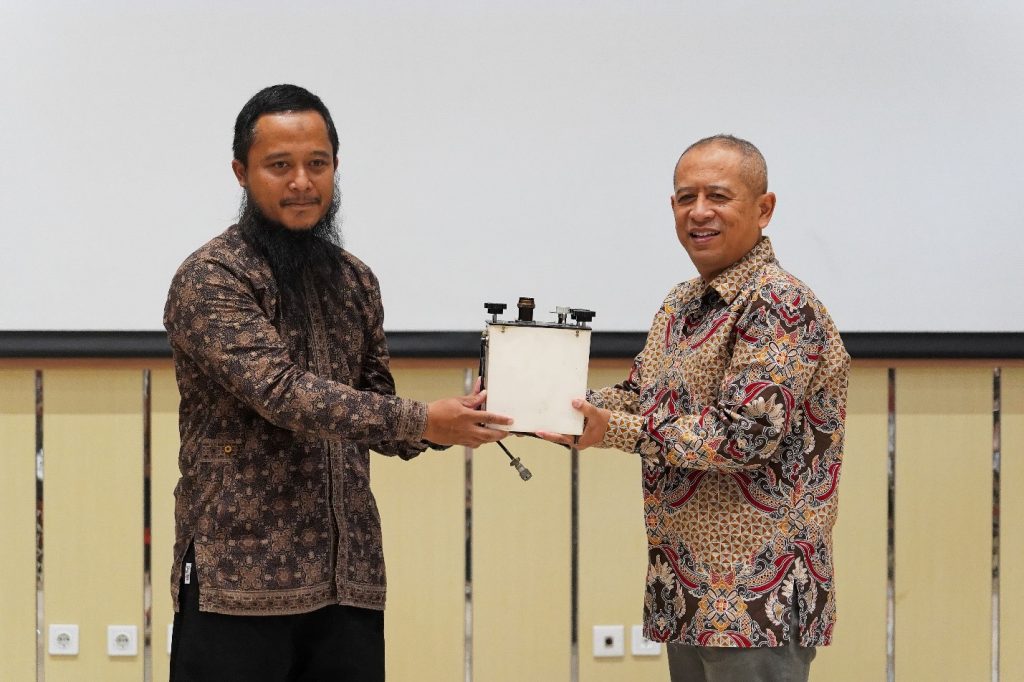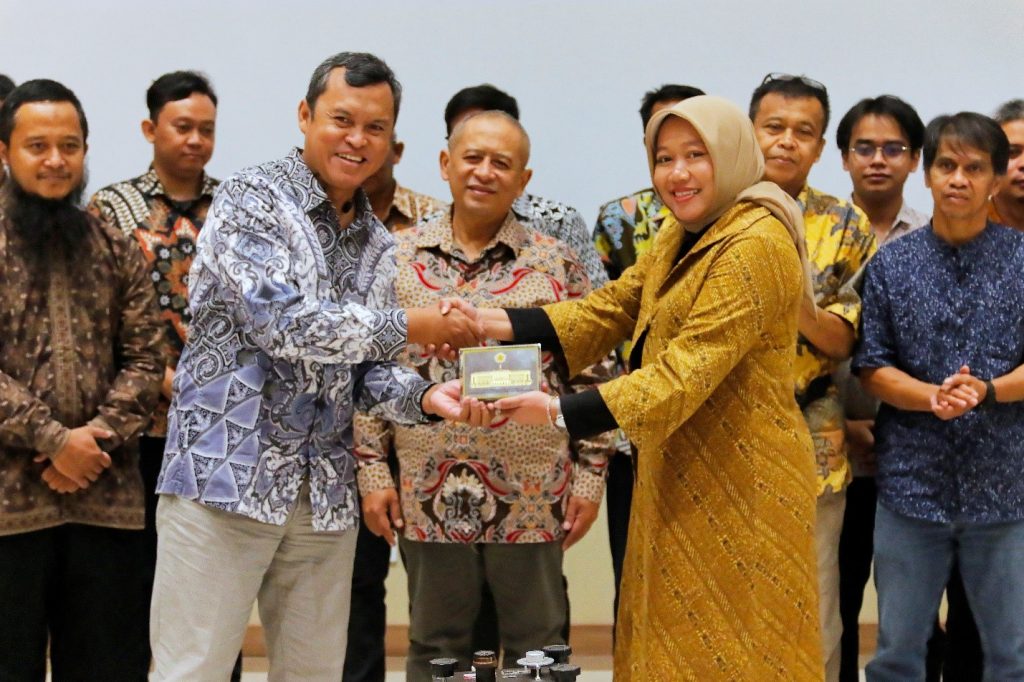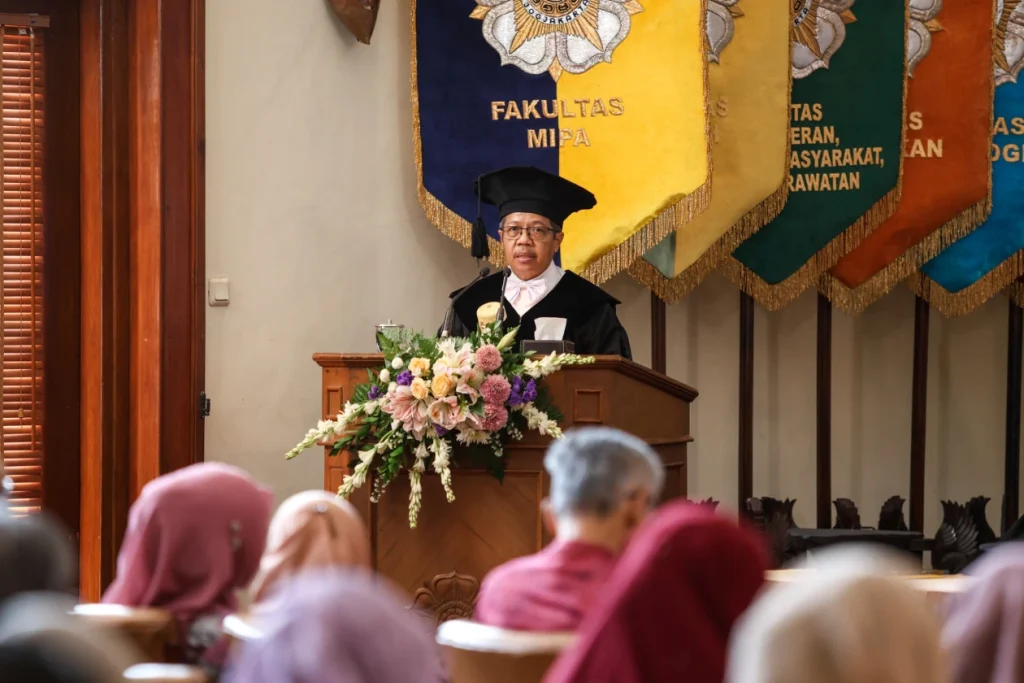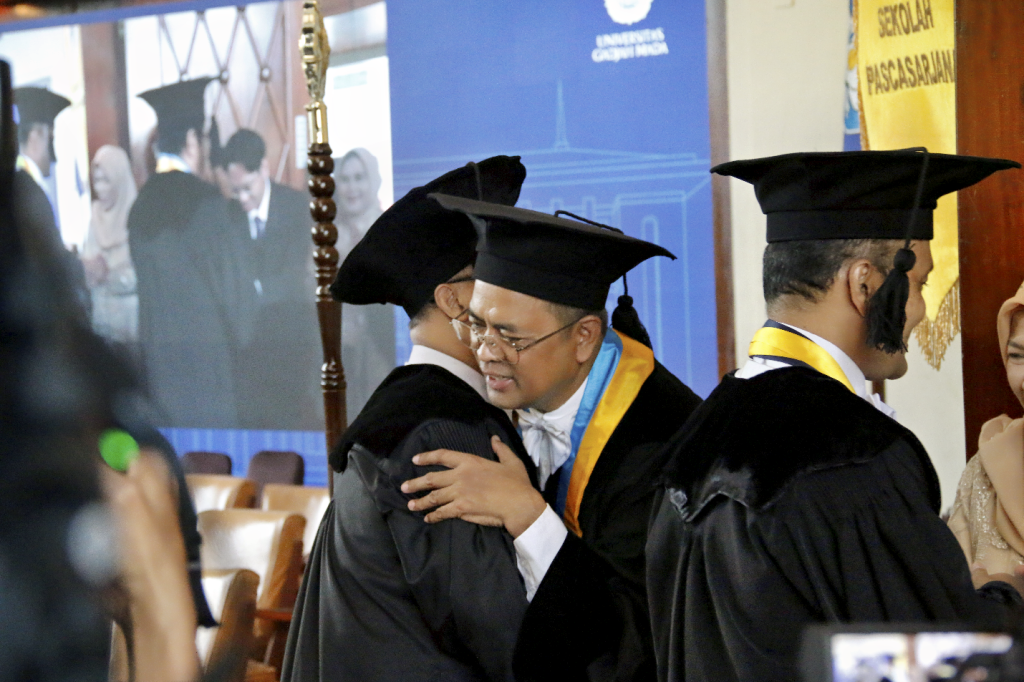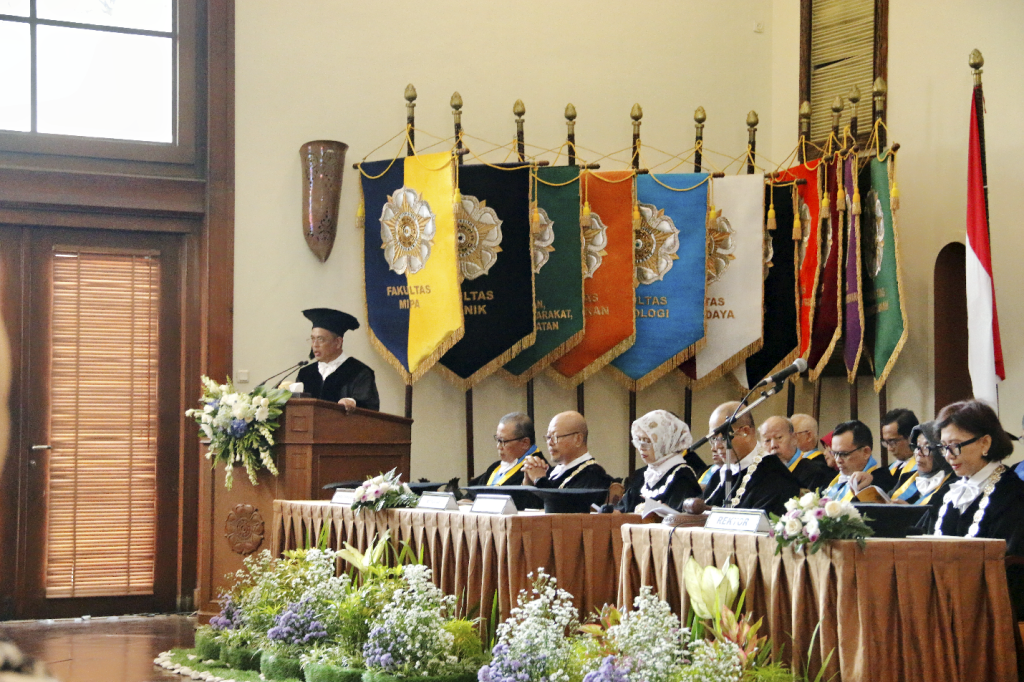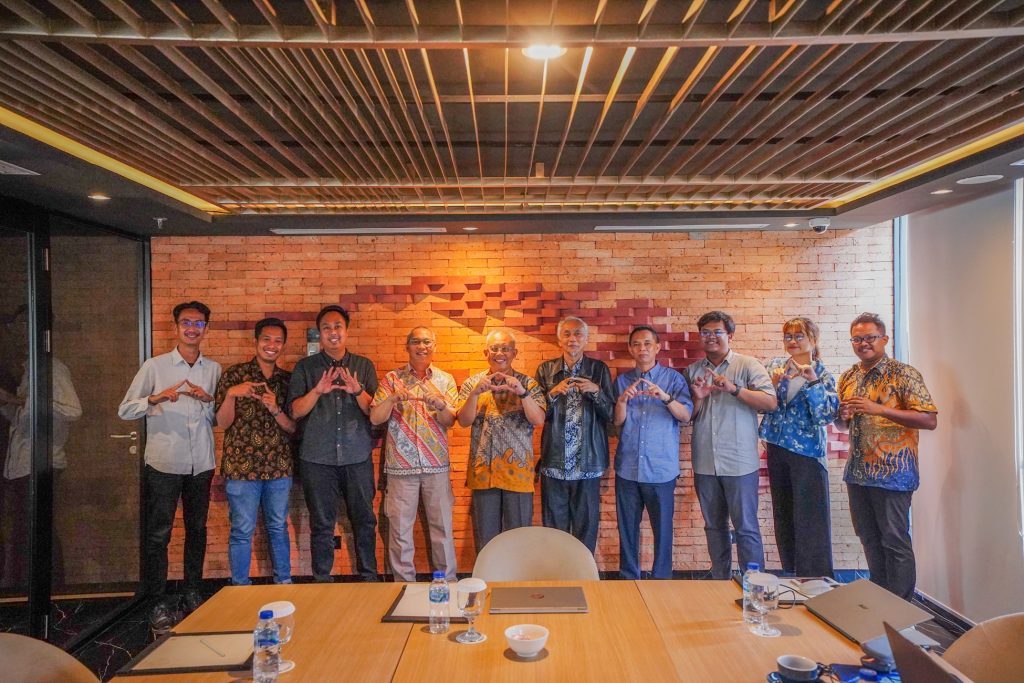
Final Report Proyek Passive Seismic Tim Pusat Kajian Geofisika Reservoar FMIPA UGM dengan Pertamina EP, Gali Potensi Hidrokarbon di Indonesia
Tim Pusat Kajian Geofisika Reservoar (PKGR) FMIPA UGM mengadakan pertemuan final untuk Proyek Survei Passive Seismic di The Manohara Hotel, Yogyakarta, pada 10 Oktober 2024. Pertemuan ini dihadiri oleh berbagai pihak, termasuk perwakilan dari PT Pertamina EP, Tim Samudra Energy BWP Meruap, PT Bass Oil Sukananti Limited, dan SKK Migas, yang mengikuti acara secara daring melalui Microsoft Teams.
Tim PKGR FMIPA UGM yang diprakarsai oleh Dr. Budi Eka Nurcahya, M.Si. mengadakan proyek survei mikrotremor pasif seismik yang bertujuan untuk memetakan potensi hidrokarbon serta menambah eviden dalam pencarian potensi hidrokarbon baru pada area survei Lapangan Meruap di Jambi dan Lapangan Sukananti di Sumatera Selatan.
Bapak Budi menyampaikan bahwa pengolahan data sumuran di lapangan menunjukkan indikasi untuk mencari resistor yang tepat. Selain itu, peta hasil frekuensi dari pengolahan pasif seismik pun dapat membantu melihat potensi area, meskipun ada beberapa struktur yang menunjukkan komponen minyak belum dioptimasi sepenuhnya. “Pengintegrasian dengan geothermal sangat diperlukan,” ujarnya.
Hasil akhir dari pertemuan ini menjadi landasan penting dalam memahami potensi hidrokarbon di kedua lapangan tersebut, sekaligus memberikan masukan signifikan bagi perkembangan studi terkait serta potensi pembukaan sumur produksi baru. Dengan hasil survei ini, langkah strategis lebih lanjut dapat diambil untuk mengoptimalkan produksi dan eksplorasi energi di Indonesia.
Kegiatan ini juga berkontribusi terhadap beberapa tujuan Sustainable Development Goals (SDGs), khususnya SDG 4 (pendidikan berkualitas), SDG 7 (energi bersih dan terjangkau), SDG 9 (industri, inovasi, dan infrastruktur), SDG 11 (kota dan komunitas yang berkelanjutan), SDG 13 (penanganan perubahan iklim), serta SDG 17 (kemitraan untuk mencapai tujuan). Proyek ini tidak hanya mendukung pertumbuhan sektor industri dan inovasi, tetapi juga berkontribusi dalam penggunaan energi bersih dan penanganan perubahan iklim, sehingga menjadi langkah positif terhadap pembangunan berkelanjutan di Indonesia.
Penulis: Chairunnisa Anggun Setiono
Dokumentasi: Danendra Azriel Ramdhany
Editor: Sulaiman Nurhidayat
